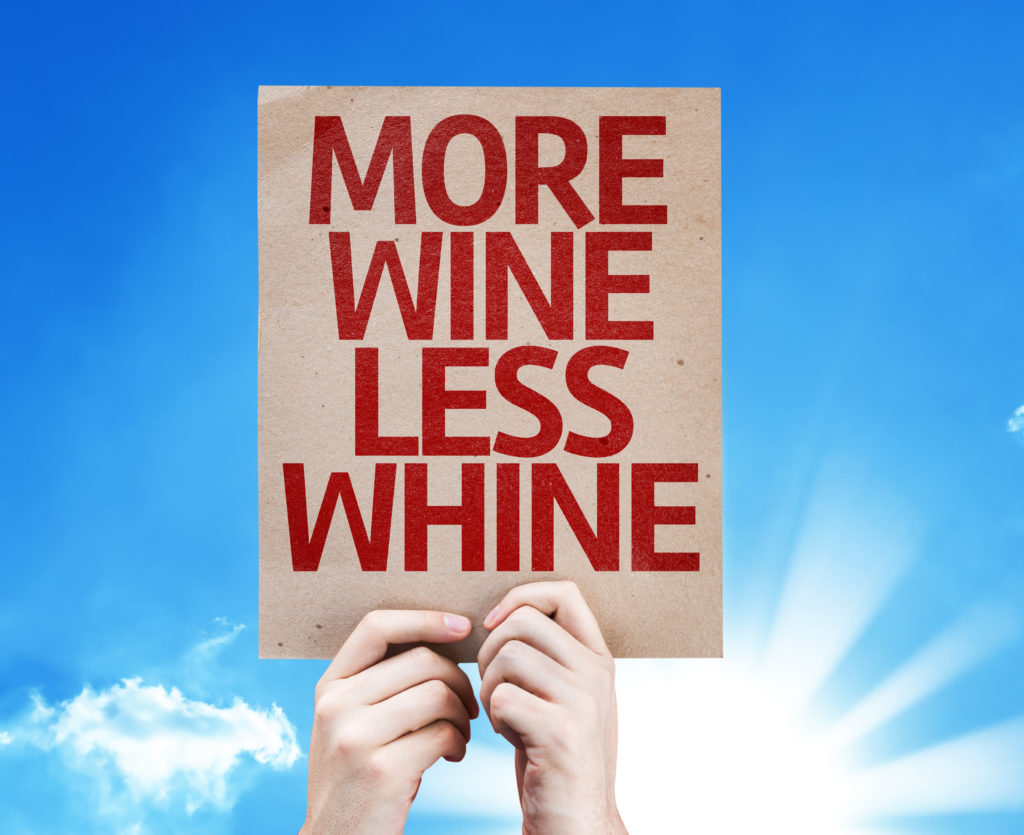“I need a glass of wine!” How often have we said that (or something similar) when our children have misbehaved, when we’ve had a setback at work, when we’ve had a big fight with someone, or when any kind of big stress has come our way? We pop the cork, sip, and shake it off. Then we go back to our everyday. Most of the time, it’s just something innocent and as simple as the need to “unwind.”
This is drinking to cope. Our culture has normalized it. Most of us do it, plan for it, and openly talk about it. We can even buy t-shirts and mugs boasting about the behavior. It seems harmless.
It could be harmless if it is an occasional coping mechanism. For many of us, it is. However, if we continue drinking to cope, we can become reliant on alcohol to “make things better.” We might not consider healthier options to cope with stress or find better ways to resolve our stressors. If our regular wine drinking is coupled with potential mental illness, a particularly difficult or traumatic stressor, or a social circle that encourages drinking alcohol, addiction could become a concern.
To give perspective, the U.S. NIH (National Institute of Health) states that women should not have more than 3 drinks per day, or 7 drinks per week. You could technically drink everyday if you wanted to, and you wouldn’t really be doing anything “wrong”, as long as you stop at one glass each day. When we drink to cope, curbing to just one a day, or 3 drinks a couple days a week might seem difficult. If you think about it, the second (or third, or fourth, and so on) drinks are the ones that numb feelings and/or alter your mood. If we’re drinking to cope, we’re choosing to drink until we feel different.
I want us to reframe our thoughts when we pull out a bottle. Instead of thinking about what we have to cope with, we should think about what we have to celebrate. For example, after a long week at work, most of us have just been waiting to get home and grab a drink to decompress and start the weekend. There’s nothing wrong with that — if you frame it the right way. Instead of thinking “I’ve had the crappiest week; I need a beer to get over it!”, reframe it as “I am pretty frickin’ resilient: I made it through this week and managed to get that project done, cheers to me!”
What I have found with this perspective change is:
• We don’t drink as much in one occasion.
• We don’t become the “depressed”, “angry”, or “ugly” drunk when we do drink.
• Being “forced” to think positive things to get a drink rewires us to be more positive in general.
• Over time, we don’t feel the urge to drink as much.
So the next time you pull out that bottle of wine, ask yourself: “Am I drinking to cope or am I drinking to celebrate?” If you can’t find a reason to clink glasses, maybe you should be doing something else.



